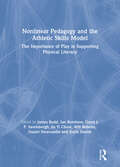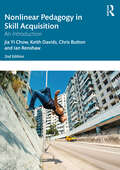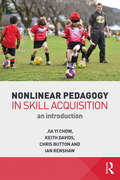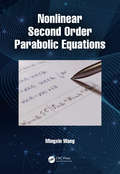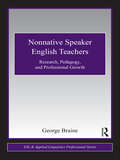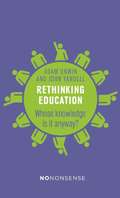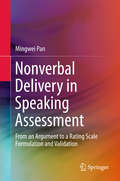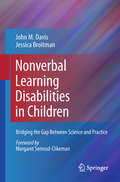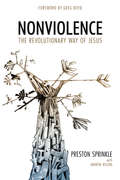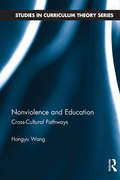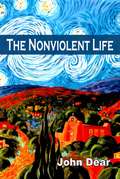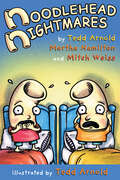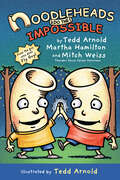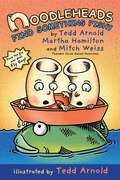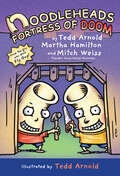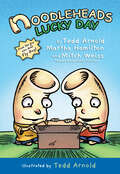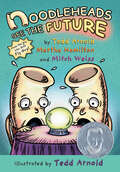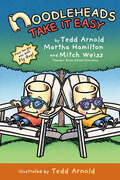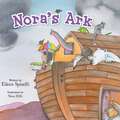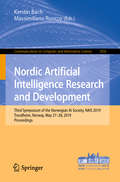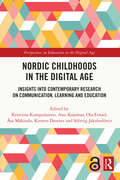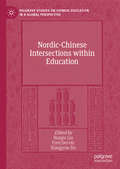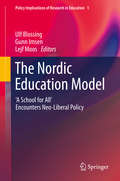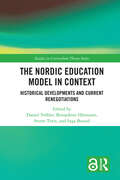- Table View
- List View
Nonlinear Pedagogy and the Athletic Skills Model: The Importance of Play in Supporting Physical Literacy
by Ian Renshaw Keith Davids Daniel Newcombe Will Roberts Jia Yi Chow Geert Savelsbergh James RuddThis book offers an ecological conceptualisation of physical literacy. Re-embracing our ancestry as hunter gatherers we gain a new appreciation and understanding of the importance of play, not only in terms of how children learn, but also in showing us as educators how we can lay the foundations for lifelong physical activity. The concept of physical literacy has been recognised and understood throughout history by different communities across the globe. Today, as governments grapple with the multiple challenges of urban life in the 21st century, we can learn from our forebears how to put play at the centre of children’s learning in order to build a more enduring physically active society. This book examines contemporary pedagogical approaches, such as constraints-led teaching, nonlinear pedagogy and the athletic skills model, which are underpinned by the theoretical framework of Ecological Dynamics. It is suggested that through careful design, these models, aimed at children, as well as young athletes, can (i) encourage play and facilitate physical activity and motor learning in children of different ages, providing them with the foundational skills needed for leading active lives; and (ii), develop young athletes in elite sports programmes in an ethical, enriching and supportive manner. Through this text, scientists, academics and practitioners in the sub-disciplines of motor learning and motor development, physical education, sports pedagogy and physical activity and exercise domains will better understand how to design programmes that encourage play and thereby develop the movement skills, self-regulating capacities, motivation and proficiency of people, so that they can move skilfully, effectively and efficiently while negotiating changes throughout the human lifespan.
Nonlinear Pedagogy and the Athletic Skills Model: The Importance of Play in Supporting Physical Literacy
by James Rudd Ian Renshaw Geert Savelsbergh Jia Yi Chow Will Roberts Daniel Newcombe Keith DavidsThis book offers an ecological conceptualisation of physical literacy. Re-embracing our ancestry as hunter gatherers we gain a new appreciation and understanding of the importance of play, not only in terms of how children learn, but also in showing us as educators how we can lay the foundations for lifelong physical activity. The concept of physical literacy has been recognised and understood throughout history by different communities across the globe. Today, as governments grapple with the multiple challenges of urban life in the 21st century, we can learn from our forebears how to put play at the centre of children’s learning in order to build a more enduring physically active society. This book examines contemporary pedagogical approaches, such as constraints-led teaching, nonlinear pedagogy and the athletic skills model, which are underpinned by the theoretical framework of Ecological Dynamics. It is suggested that through careful design, these models, aimed at children, as well as young athletes, can (i) encourage play and facilitate physical activity and motor learning in children of different ages, providing them with the foundational skills needed for leading active lives; and (ii), develop young athletes in elite sports programmes in an ethical, enriching and supportive manner. Through this text, scientists, academics and practitioners in the sub-disciplines of motor learning and motor development, physical education, sports pedagogy and physical activity and exercise domains will better understand how to design programmes that encourage play and thereby develop the movement skills, self-regulating capacities, motivation and proficiency of people, so that they can move skilfully, effectively and efficiently while negotiating changes throughout the human lifespan.
Nonlinear Pedagogy in Skill Acquisition: An Introduction
by Jia Yi Chow Keith Davids Chris Button Ian RenshawNonlinear Pedagogy is a powerful paradigm for understanding human movement and for designing effective teaching, coaching and training programmes in sport, exercise and physical education (PE). It addresses the inherent complexity in learning movement skills, viewing the learner, the learning environment and the teacher or coach as a complex interacting system. The constraints of individual practice tasks provide the platform for functional movement behaviours to emerge during practice and performance. The second edition includes new materials, of practical, theoretical and empirical relevance, to enhance understanding of how to implement a Nonlinear Pedagogy to support learning in sport, PE and physical activity. There is updated, in-depth discussion on the various pedagogical principles that support Nonlinear Pedagogy and how these principles are applicable in learning designs in sports and physical education. There is further emphasis on examining how transfer of learning is implicated in practice, highlighting its relevance on skill adaptation and talent development. The first part of the book updates the general theoretical framework to explain processes of skill acquisition and motor learning. This edition draws clearer links between skill acquisition, expertise and talent development, focusing on how specificity and generality of transfer have a role to play in the development of learners. The book defines Nonlinear Pedagogy and outlines its key principles of practice. It offers a thorough and critical appraisal of the functional use of instructional constraints and practice design. It discusses methods for creating challenging and supportive individualised learning environments at developmental, sub-elite and elite levels of performance. The second part focuses on the application of Nonlinear Pedagogy in sports and PE. There is a greater emphasis on helping applied scientists and practitioners understand the impact of Nonlinear Pedagogy on transfer of learning. Every chapter is updated to provide relevant contemporary cases and examples from sport and exercise contexts, providing guidance on practice activities and lessons. Nonlinear Pedagogy in Skill Acquisition is an essential companion for any degree-level course in skill acquisition, motor learning, sport science, sport pedagogy, sports coaching practice, or pedagogy or curriculum design in physical education.
Nonlinear Pedagogy in Skill Acquisition: An Introduction
by Ian Renshaw Keith Davids Jia Yi Chow Chris ButtonNonlinear pedagogy is a powerful paradigm for understanding human movement and for designing effective teaching, coaching and training programs in sport, exercise and physical education. It addresses the inherent complexity in the learning of movement skills, viewing the learner, the learning environment and the teacher or coach as a complex interacting system, with the constraints of individual practice tasks providing the platform for functional movement behaviours to emerge. This is the first book to explain this profoundly important new approach to skill acquisition, introducing key theoretical ideas and best practice for students, teachers and coaches. The first section of the book offers a general theoretical framework to explain processes of skill acquisition and the learning of movement skills. The book then defines nonlinear pedagogy, and outlines its key principles of practice. It offers a thorough and critical appraisal of the optimal use of instructional constraints and practice design, and discusses methods for creating challenging and supportive individualised learning environments at developmental, sub-elite and elite levels of performance. Every chapter contains cases and examples from sport and exercise contexts, providing guidance on practice activities and lessons. Nonlinear Pedagogy in Skill Acquisition is an essential companion for any degree level course in skill acquisition, motor learning, sport science, sport pedagogy, sports coaching practice, or pedagogy or curriculum design in physical education.
Nonlinear Second Order Parabolic Equations
by Mingxin WangThe parabolic partial differential equations model one of the most important processes in the real-world: diffusion. Whether it is the diffusion of energy in space-time, the diffusion of species in ecology, the diffusion of chemicals in biochemical processes, or the diffusion of information in social networks, diffusion processes are ubiquitous and crucial in the physical and natural world as well as our everyday lives. This book is self-contained and covers key topics such as theory and Schauder theory, maximum principle, comparison principle, regularity and uniform estimates, initial-boundary value problems of semilinear parabolic scalar equations and weakly coupled parabolic systems, the upper and lower solutions method, monotone properties and long-time behaviours of solutions, convergence of solutions and stability of equilibrium solutions, global solutions and finite time blowup. It also touches on periodic boundary value problems, free boundary problems, and semigroup theory. The book covers major theories and methods of the field, including topics that are useful but hard to find elsewhere. This book is based on tried and tested teaching materials used at the Harbin Institute of Technology over the past ten years. Special care was taken to make the book suitable for classroom teaching as well as for self-study among graduate students. About the Author: Mingxin Wang is Professor of Mathematics at Harbin Institute of Technology, China. He has published ten monographs and textbooks and 260 papers. He is also a supervisor of 30 PhD students.
Nonnative Speaker English Teachers: Research, Pedagogy, and Professional Growth (ESL & Applied Linguistics Professional Series)
by George BraineAccording to current estimates, about eighty percent of English teachers worldwide are nonnative speakers of the language. The nonnative speaker movement began a decade ago to counter the discrimination faced by these teachers and to champion their causes. As the first single-authored volume on the topic since the birth of the movement, this book fills the need for a coherent account that: traces the origins and growth of the movement summarizes the research that has been conducted highlights the challenges faced by nonnative speaker teachers promotes NNS teachers’ professional growth. No discussion of world Englishes or the spread of English internationally is now complete without reference to the NNS movement. This book celebrates its first decade and charts a direction for its growth and development.
NoNonsense Rethinking Education: Whose knowledge is it anyway?
by Adam Unwin John YandellWhat is knowledge? Who decides what is important? Who owns it? These are central themes that run through this title that aims to change perceptions and understanding of education. Using historical and contemporary examples, the authors examine the motivations, conflicts, and contradictions in education. In breaking down the structures, forces, and technologies involved they show how alternative approaches can emerge.Dr. Adam Unwin is Senior Lecturer in Business and Economics Education at University College London's Institute of Education. John Yandell is Senior Lecturer in Education at University College London Institute of Education.
Nonverbal Delivery in Speaking Assessment
by Mingwei PanWith an argument for embedding nonverbal delivery in speaking assessment as a point of departure, this book seeks to validate a proposed rating scale for incorporating nonverbal delivery and other conventional dimensions into speaking assessment with a mixed-methods approach. To illustrate the indispensable role of nonverbal delivery in speaking assessment, the book particularly includes snapshots of test-takers' de facto nonverbal delivery, which allow their respective levels to be investigated in a microscopic manner.
Nonverbal Learning Disabilities in Children
by Jessica Broitman John M. DavisThis book offers a well-rounded understanding of nonverbal learning disabilities (NVLD) in children, placing it within the context of other developmental disorders, most notably high-functioning autism and Asperger's syndrome.
Nonviolence: The Revolutionary Way of Jesus
by Dr. Preston M. SprinkleIn a unique narrative approach, Sprinkle begins by looking at how the story of God as a whole portrays violence and war, drawing conclusions that guide the reader through the rest of the book. With urgency and precision, he navigates hard questions and examines key approaches to violence, driving every answer back to Scripture. Ultimately, Sprinkle challenges the church to "walk in a manner worthy of our calling" and shape our lives on the example of Christ. Nonviolence: The Revolutionary Way of Jesus is biblically rooted, theologically coherent, and prophetically challenging. It is a defining work that will stir discussions for years to come.
Nonviolence and Education: Cross-Cultural Pathways (Studies in Curriculum Theory Series)
by Hongyu WangIn current global politics, which positions China as a competitor to American leadership, in-depth understandings of transnational mutual engagement are much needed for cultivating nonviolent relations. Exploring American and Chinese professors’ experiences at the intersection of the individual, society, and history, and weaving the autobiographical and the global, this book furthers understanding of their cross-cultural personal awareness and educational work at universities in both countries. While focusing on life histories, it also draws on both American and Chinese intellectual traditions such as American nonviolence activism, Taoism, and Buddhism to formulate a vision of nonviolence in curriculum studies. Centering cross-cultural education and pedagogy about, for, and through nonviolence, this volume contributes to internationalizing curriculum studies and introduces curriculum theorizing at the level of higher education. Hongyu Wang brings together stories, dialogues, and juxtapositions of cross-cultural pathways and pedagogies in a powerful case for theorizing and performing nonviolence education as visionary work in the internationalization of curriculum studies.
The Nonviolent Life
by John DearNonviolence Toward Ourselves, Nonviolence Toward All Others, Joining the Global Grassroots Movement of Nonviolence.
Noodlehead Nightmares (Noodleheads #1)
by Tedd Arnold Martha Hamilton Mitch WeissFrom the author who brought you Fly Guy comes an easy-to-read graphic novel about two very funny brothers—&“great fun for newly independent readers and graphic novel newbies&” (School Library Journal) Mac and Mac, who love pie and hate making their beds, are hollow-headed. "See in here? Nothing! Zippo! Nada!" Mac explains. That&’s why they're so easy to fool—and their clever friend Meatball isn't afraid to take advantage of that fact. Illustrated by Tedd Arnold, whose Fly Guy series is a kid favorite, this graphic novel is perfect for comic fans and reluctant readers, with short, funny chapters following Mac and Mac through ridiculous adventures. Full of wordplay, jokes, and slapstick humor, the Noodlehead series is sure to delight. Based on traditional world folktales and stories of fools, the Noodleheads also encourage critical thinking, inviting kids to use their noodles—spotting the holes in the brothers' grand plans, and anticipating how things will go awry. Source notes from professional storytellers Martha Hamilton and Mitch Weiss provide more information about the traditional stories that inspired Mac and Mac's mishaps, showing how these comic motifs feature in folklore and legends all around the world and offering opportunities for further reading. This easy-to-read series, including the Geisel Honor book Noodleheads See the Future, is an accessible introduction to stories of fools, and a great next read for fans of the Fly Guy books.
Noodleheads Do the Impossible (Noodleheads #6)
by Tedd Arnold Martha Hamilton Mitch WeissDo you want to be famous? Mac and Mac do. How? By doing the impossible! You'll laugh out loud at the funny adventures in this comic-style book.First they decide to walk around the world. But when Mom says it's too far for them to go, they decide to count the stars. They reach a bazillion when they see that some of the stars have fallen into Mom's washtub.Mac and Mac rescue the fallen stars, but then lose count. They decide to count grains of sand instead.Then . . . while counting grains of sand, they realize THEY'VE WALKED AROUND THE WORLD!!!This sixth book in the Noodleheads graphic novel series is perfect for comic fans and reluctant readers. Short chapters--full of wordplay, jokes, and slapstick humor--follow Mac and Mac through their funny adventures. It is co-written and illustrated by Tedd Arnold, known for his popular Fly Guy series.Based on traditional world folktales and stories of fools, the Noodleheads encourage critical thinking. They invite readers to use their noodles to spot holes in the brothers' grand plans. Source notes by co-authors Martha Hamilton and Mitch Weiss, professional storytellers known as Beauty and the Beast, provide information about the traditional stories that inspired Mac and Mac's mishaps and give suggestions for further reading.This easy-to-read series, including the Geisel Honor book Noodleheads See the Future, is an accessible introduction to stories of fools, and a great next read for fans of the Fly Guy books. A Junior Library Guild Gold Standard Selection
Noodleheads Find Something Fishy (Noodleheads #3)
by Tedd Arnold Martha Hamilton Mitch WeissThe hilarious Noodlehead Brothers Mac and Mac return in this easy-to-read graphic novel by best-selling author-illustrator Tedd Arnold and two award-winning storytellers. Mac and Mac, as gullible as ever, decide that since fish live in schools, they must be smart. The fish in this funny story certainly are smart enough to outwit Mac and Mac--and so is their friend Meatball, who shows them how to get a bigger boat. But there's something fishy about his suggestion. . . Illustrated by Tedd Arnold, whose Fly Guy series is a kid favorite, this graphic novel is perfect for comic fans and reluctant readers, with short, funny chapters following Mac and Mac through ridiculous adventures. Full of wordplay, jokes, and slapstick humor, the Noodlehead series is sure to delight. Based on traditional world folktales and stories of fools, the Noodleheads also encourage critical thinking, inviting kids to use their noodles- spotting the holes in the brothers' grand plans, and anticipating how things will go awry. Source notes from professional storytellers Martha Hamilton and Mitch Weiss provide more information about the traditional stories that inspired Mac and Mac's mishaps, showing how these comic motifs feature in folklore and legends all around the world and offering opportunities for further reading.This easy-to-read series, including the Geisel Honor book Noodleheads See the Future, is an accessible introduction to stories of fools, and a great next read for fans of the Fly Guy books. A Junior Library Guild selection!
Noodleheads Fortress of Doom (Noodleheads #4)
by Tedd Arnold Martha Hamilton Mitch WeissMac and Mac may be noodles with empty heads, but they have big ideas: building a fortress! This vibrantly colorful graphic novel for easy readers hits the nail on the head with comedy.The Noodlehead brothers are back from the library with a joke book, a fantasy novel, and a dream: to build their very own Fortress of Doom. If they can stop bickering for long enough. And if they can defend it from their wily friend Meatball. Jump right in with this fourth title in an easy-to-read graphic novel series about more than two hollow pastas trying to have fun. Award-winning storytellers Mitch Weiss and Martha Hamilton join Tedd Arnold, author of the Fly Guy series, to create a masterpiece of hilarity. This easy-to-read series, including the Geisel Honor book Noodleheads See the Future, is an accessible introduction to stories of fools, and a great next read for fans of the Fly Guy books.With short, funny chapters full of wordplay, jokes, and slapstick humor, the Noodleheads series is sure to delight. Based on traditional world folktales and stories of fools, the Noodleheads also encourage critical thinking, inviting kids to use their noodles- spotting the holes in the brothers' grand plans, and anticipating how things will go awry.An ILA-CBC Children's Choice!
Noodleheads Lucky Day (Noodleheads #5)
by Tedd Arnold Martha Hamilton Mitch WeissYou'll laugh out loud when Mac and Mac try to hatch a kitten. . . out of a watermelon. This easy-to-read intro to graphic novels is perfect for "fans of all things goofy" according to School Library Journal.Twin brothers Mac and Mac are soooo lucky. How lucky are they? When they get hit on the head with an acorn, they're lucky that little acorns and not big watermelons grow on trees.When their frenemy Meatball gives them a bag full of bees, they're lucky that Mom has just built a beehive to put them in.And when their watermelon DOESN'T hatch a kitten, they're lucky that there's another way to get a pet.Illustrated by Tedd Arnold, whose Fly Guy series is a kid favorite, this fifth book in the Noodleheads graphic novel series is perfect for comic fans and reluctant readers, with short, funny chapters following Mac and Mac through ridiculous adventures. Full of wordplay, jokes, and slapstick humor, the Noodlehead series is sure to delight.Based on traditional world folktales and stories of fools, the Noodleheads also encourage critical thinking, inviting kids to use their noodles- spotting the holes in the brothers' grand plans, and anticipating how things will go awry. Source notes from professional storytellers Martha Hamilton and Mitch Weiss provide more information about the traditional stories that inspired Mac and Mac's mishaps, showing how these comic motifs feature in folklore and legends all around the world and offering opportunities for further reading.A Junior Library Guild Selection!
Noodleheads See the Future (Noodleheads #2)
by Tedd Arnold Martha Hamilton Mitch WeissTedd Arnold—the guy who does Fly Guy—and his storyteller friends are bringing folktale tomfoolery into the 21st Century, with this Geisel Honor-winning companion to Noodlehead Nightmares. Although Mac and Mac are as hollow-headed as, well, noodles, they're always coming up with brilliant schemes. For instance, they're absolutely certain Mom will bake them a cake if they gather some firewood for her. But when their friend Meatball offers to trade them a handful of firewood seeds, the gullible brothers can't foresee what will happen next. . . Illustrated by Tedd Arnold, whose Fly Guy series is a kid favorite, this graphic novel is perfect for comic fans and reluctant readers, with short, funny chapters following Mac and Mac through ridiculous adventures. Full of wordplay, jokes, and slapstick humor, the Noodlehead series is sure to delight. Based on traditional world folktales and stories of fools, the Noodleheads also encourage critical thinking, inviting kids to use their noodles– spotting the holes in the brothers' grand plans, and anticipating how things will go awry. Source notes from professional storytellers Martha Hamilton and Mitch Weiss provide more information about the traditional stories that inspired Mac and Mac's mishaps, showing how these comic motifs feature in folklore and legends all around the world and offering opportunities for further reading. This easy-to-read series is an accessible introduction to stories of fools, and a great next read for fans of the Fly Guy books. A Junior Library Guild selection!
Noodleheads Take It Easy (Noodleheads #7)
by Tedd Arnold Martha Hamilton Mitch WeissTaking it easy is easy peasy, until Mac and Mac give it a try! This colorful graphic novel will have 1st and 2nd grade independent readers laughing out loud at Noodleheads&’ funny adventures.Mac and Mac want to take it easy and eat their favorite pie, but making pie isn&’t as easy as eating it! Or is it? Along the way they their friends and mom give them tricks to make it as easy as…well pie! But the boys&’ shenanigans make things harder than they need to be. Will Mac and Mac get to have their pie and eat it too? This seventh book in the Noodleheads graphic novel series is perfect for comic fans and reluctant readers. Short chapters--full of wordplay, jokes, and slapstick humor--follow Mac and Mac through their funny adventures. It is co-written and illustrated by Tedd Arnold, known for his popular Fly Guy series. Based on traditional world folktales and stories of fools, the Noodleheads encourage critical thinking. They invite readers to use their noodles to spot holes in the brothers' grand plans. Source notes by co-authors Martha Hamilton and Mitch Weiss, professional storytellers known as Beauty and the Beast, provide information about the traditional stories that inspired Mac and Mac's mishaps and give suggestions for further reading. This easy-to-read series, including the Geisel Honor book Noodleheads See the Future, is an accessible introduction to stories of fools, and a great next read for fans of the Fly Guy books. A Junior Library Guild Gold Standard Selection
Nora's Ark
by Eileen SpinelliThe weatherman predicted rain.So Nora built an ark.Just like Noah.Well….Not just like Noah. Noah welcomed a host of animals two-by-two. Nora’s passenger list includes two backyard spiders, a pair of battery-operated monkeys, and a couple of unimpressed cats. Nora also employs her little brother, some dusty wooden boxes, and a sizeable dose of contagious imagination in her distinctive re-creation of the timeless story. Charming and inventive, Nora’s big voyage, and its stirring conclusion, provide entertainment and inspiration for readers of all ages.
Nordic Artificial Intelligence Research and Development: Third Symposium of the Norwegian AI Society, NAIS 2019, Trondheim, Norway, May 27–28, 2019, Proceedings (Communications in Computer and Information Science #1056)
by Kerstin Bach Massimiliano RuoccoThis book constitutes the refereed proceedings of the Third Symposium of the Norwegian AI Society, NAIS 2019, held in Trondheim, Norway, in May, 2019. The 11 full papers and 3 short papers were carefully reviewed and selected from 21 submissions. The papers focus on all aspects of: artificial intelligence; machine learning; knowledge representation; robotics; planning and scheduling; natural language processing; computer vision; search algorithms; multi-agent-systems; industrial applications; and philosophical and ethical foundations.
Nordic Childhoods in the Digital Age: Insights into Contemporary Research on Communication, Learning and Education (Perspectives on Education in the Digital Age)
by Kristiina Kumpulainen Anu Kajamaa Ola Erstad Åsa Mäkitalo Kirsten Drotner Sólveig JakobsdóttirThis book adds to the international research literature on contemporary Nordic childhoods in the context of fast evolving technologies. Bringing together researchers from Finland, Norway, Sweden, Denmark and Iceland, it addresses pressing issues around children’s communication, learning and education in the digital age. The volume sheds light on cultural values, educational policies and conceptions of children and childhood, and child-media relationships inherent in Nordic societies. Chapters investigate both formal education and everyday informal spaces as research sites. The book argues for the importance of understanding local cultures, values and communication practices that make up contemporary digital childhoods and extends current discourses on children’s screen time to bring in new insights about the nature of children’s digital engagement. This book will appeal to researchers, scholars, post graduate students and policy makers in the fields of childhood education, educational technology and communication. It will also be of interest to those studying and teaching in communication studies, learning and educational sciences at a higher level.
Nordic-Chinese Intersections within Education (Palgrave Studies on Chinese Education in a Global Perspective)
by Haiqin Liu Fred Dervin Xiangyun DuThis book examines how the two educational systems of China and the Nordic countries intersect. Over the past decade, there has been increased growth and interaction between China and the Nordic countries due to both government encouragement and academic curiosity. This book rejects a simplistic approach that presents both spaces as culturally uniform, confronting ‘East’ and ‘West’ entities, and suggests a comparative and contrastive approach that is critical and reflexive in both theory and methodology. This does not solely concentrate on difference, but emphasises similarities, including studies on philosophical, conceptual and methodological issues. This nuanced edited collection will appeal to students and scholars of Nordic and Chinese education as well as globalisation and interculturality.
The Nordic Education Model
by Ulf Blossing Gunn Imsen Lejf MoosThis book presents a detailed analysis of the educational model in Nordic European countries. It describes the traditional idea of education for all, which can be characterized by the right for every child to have an education of equal quality in a common school for all pupils regardless of social class, abilities, gender, or ethnicity. Against this background, The Nordic Education Model traces the rise of neo-liberal policies that have been enacted by those who believe the School for All ideology does not produce the knowledge and skills that students need to succeed in an increasingly competitive and global marketplace. It examines the conflict between these two ideas and shows how neo-liberal technologies affect the Nordic model in different ways. The authors also show how social technologies are being interpreted in different ways in actual school practices. This process of translating national regulations into internal sense builds on the values in the culture to which they are introduced. In the end, this book reveals that a Nordic model can constitute a delicate balance between traditional values, institutionalized practices, and contemporary, neo-liberal forms of governance and policies. It may be argued from a new institutional perspective that the main structures of the Nordic educational model will sustain as long as the deeply rooted Nordic culture survives in the globalised society.
The Nordic Education Model in Context: Historical Developments and Current Renegotiations (Studies in Curriculum Theory Series)
by Daniel Tröhler Bernadette Hörmann Sverre Tveit Inga BostadTracing historical and cultural factors which gave rise to the Nordic Education Model, this volume explores why Northern European education policy has become an international benchmark for schooling. The text explains the historical connection between a Nordic ideal of democracy and schooling, and indicates how values of equality, welfare, justice, and individualism might be successfully integrated in national school systems and curricula around the world. The volume also highlights recent debates around the longevity of the Nordic model and explores the risks and challenges posed by international policy and assessment agendas. Exploring how Nordic education polices successfully merge social equity with academic excellence, the book combines cultural, historical, sociological and philosophical analysis with a deep exploration of curriculum and teaching. This book will be of great interest to researchers, scholars, and postgraduates working across the fields of curriculum, comparative education, cultural studies and history and philosophy of education and education policy.
